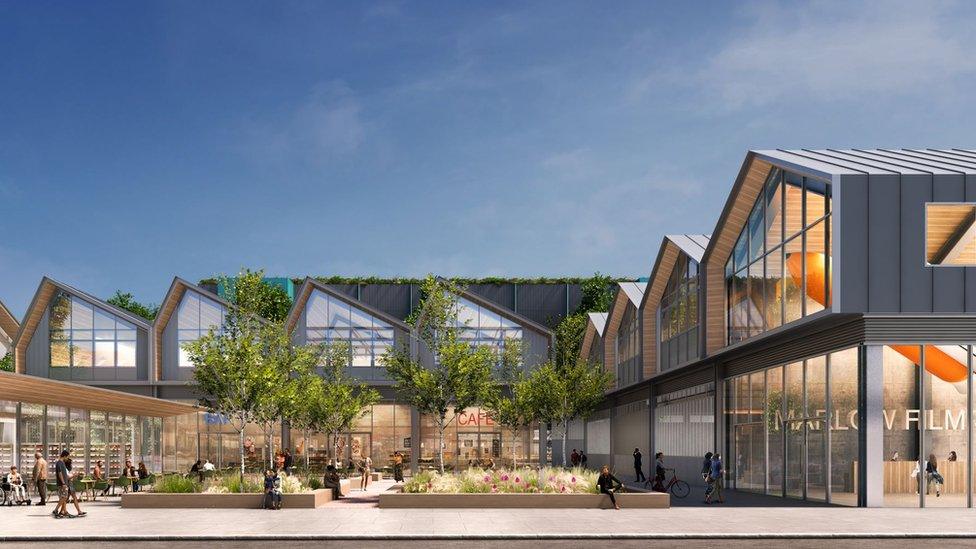Film studio on green belt land approved on appeal
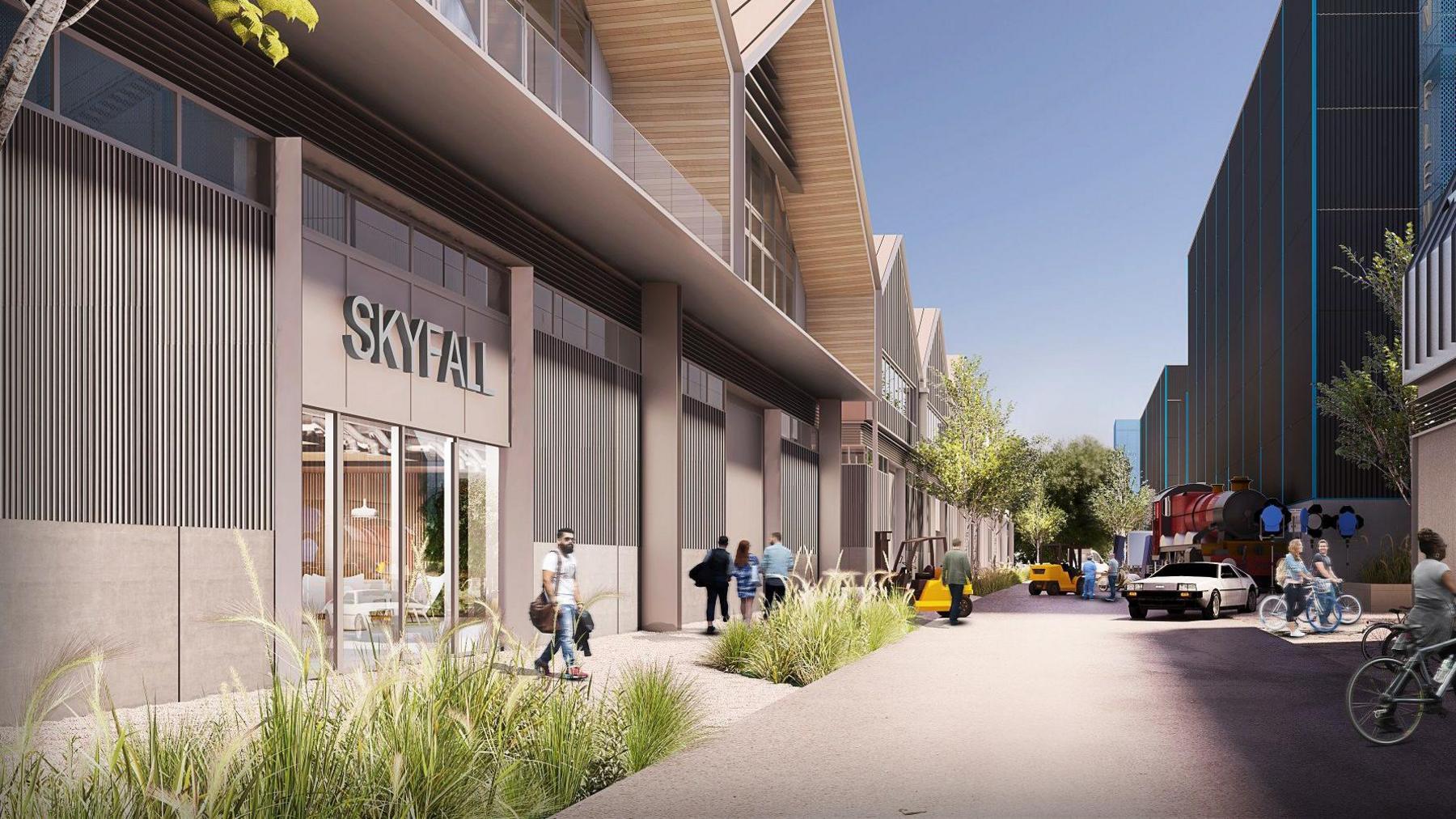
Marlow Film Studios has been given planning approval following an appeal process
- Published
The government has granted planning permission for a multi-million pound film studio on green belt land following an appeal.
In 2024, Buckinghamshire Council had rejected the proposed Marlow Film Studios (MFS) because of concerns about traffic, biodiversity and harm to the local landscape.
That decision has now been overturned by a planning minister on behalf of Housing Secretary Steve Reed, who believed economic benefits outweighed potential harm.
Robert Laycock, MFS chief executive, said it was "a real vote of confidence in the UK and in its creative industries". A council spokesperson said it was "incredibly disappointed".
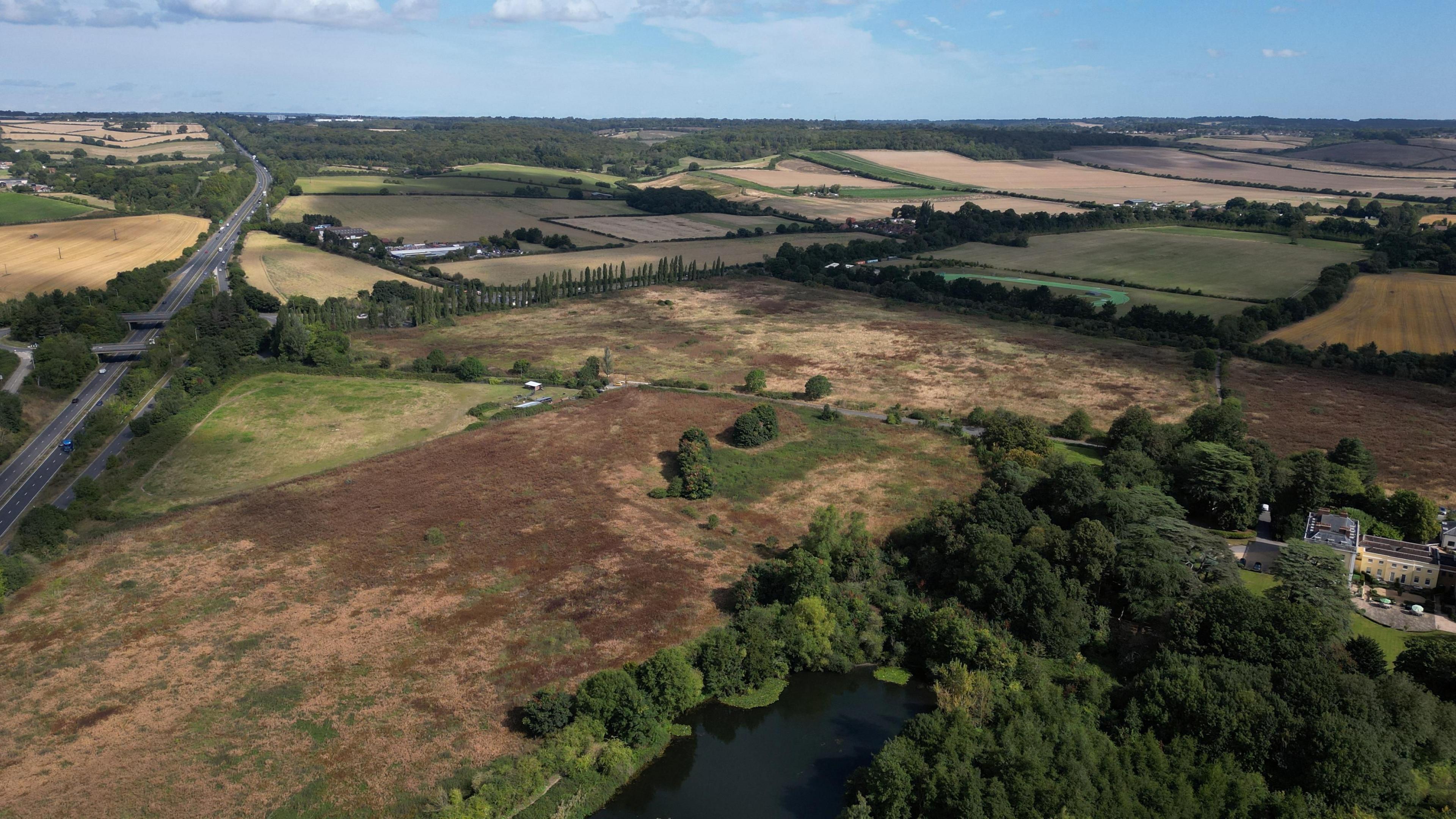
The council argued the proposed site, near the town of Marlow, was green belt land and not appropriate for the development
MFS plans to invest £750m in the development, which it said would focus on developing skills as well as providing studio space.
"Regenerating a poorly landfilled site to enable new careers and pass on exceptional skills in this world-beating British industry is the right decision," added Mr Laycock.
"The decision is clear in its assessment that Marlow Studios will attract global investment, help the UK maintain its competitive creative edge, and will strengthen the West London film cluster," he said.
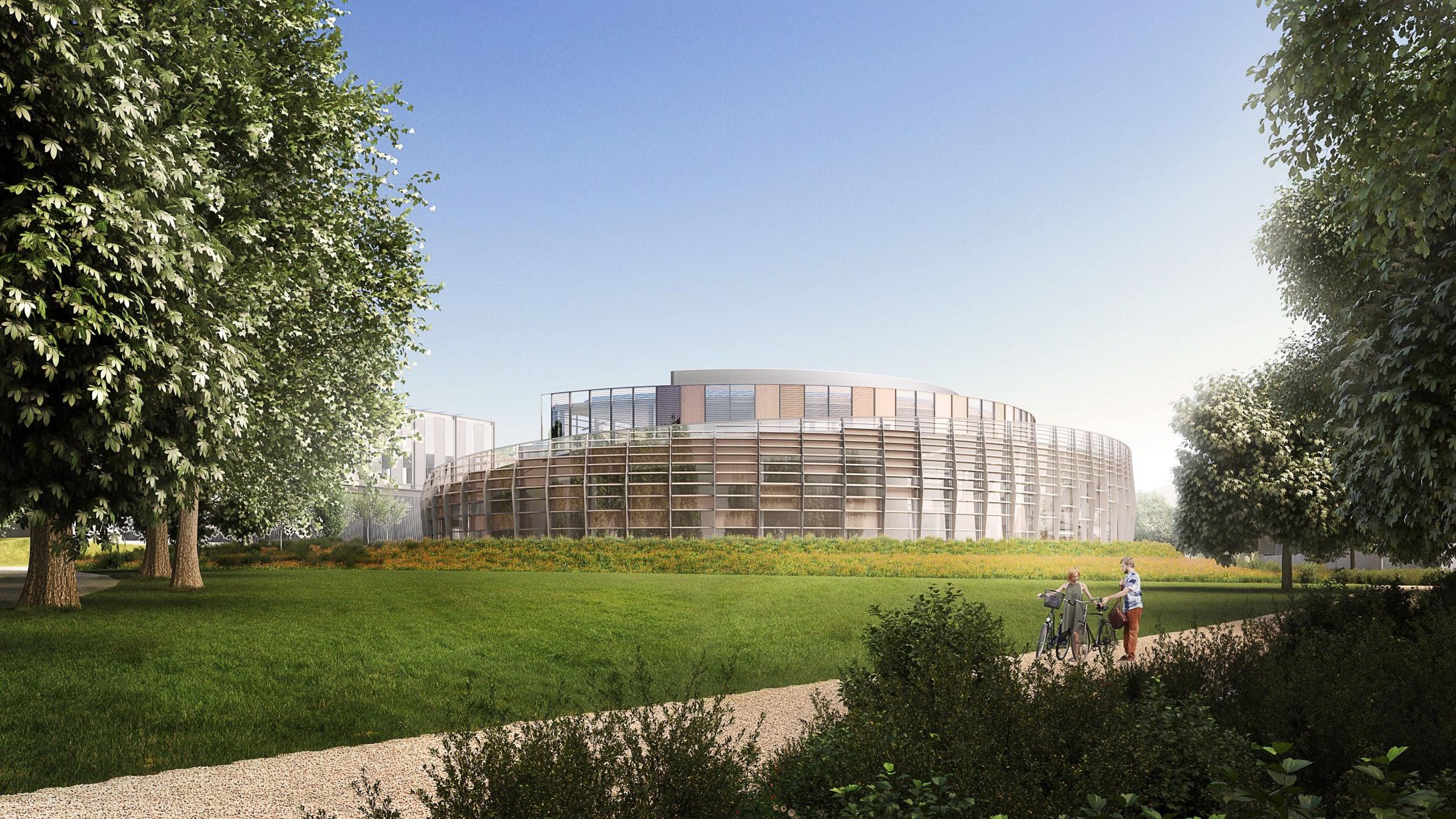
Marlow Film Studios' plans included promises of investment in public infrastructure
Peter Strachan, a Conservative councillor who is the cabinet member for planning, said Buckinghamshire Council was "incredibly disappointed that the significant concerns raised by the council, local communities, and statutory consultees have not been upheld".
He added: "Our original decision was based on a detailed and evidence-led assessment of the application, which identified serious and unresolved issues, including inappropriate development of protected green belt land, concerns around landscape impact, residential amenities, traffic, infrastructure and sustainability."
Although the council acknowledged the importance of creative industries, he said, "such development must be delivered in the right place, with the right infrastructure".
Hollywood names
The studio, which will be built by developer Dido Property Limited, will consist of workshops, offices and 18 sound stages.
Covering an area of 168,718 sqm (1.8m sqft), the development will also include cafes, public areas and 1,117 car parking spaces.
Developers hope it will create about 2,000 jobs and contribute £249m to the economy annually.
It will also include a Culture and Skills Academy, to develop talent for the future of the UK film industry.
It has been publicly supported by Hollywood names including Avatar creator James Cameron, Lord of the Rings actor Andy Serkis and Bond director Sam Mendes.
Critics such as campaign group Save Marlow's Greenbelt argued there was already enough studio space to meet the demand, with plenty in the local area.
It has been invited to comment.
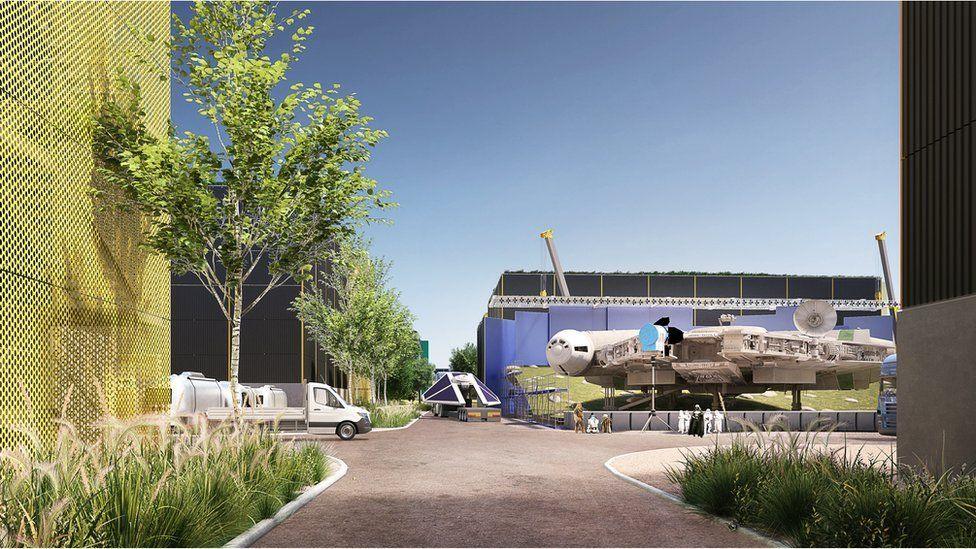
Marlow Film Studios was rejected by Buckinghamshire Council, mainly over concerns about the green belt
A government planning inspector acknowledged potential harm to the landscape and visual character of the area as well as conflicts with local planning policies.
However she concluded that the benefits, such as jobs and investment, outweighed these impacts.
The secretary of state agreed, citing national priorities for creative industries and economic growth.
Get in touch
Do you have a story suggestion for Beds, Herts & Bucks?
Follow Beds, Herts and Bucks news on BBC Sounds, Facebook, external, Instagram, external and X, external.
Related topics
- Published21 January

- Published10 October 2024

- Published12 May 2024
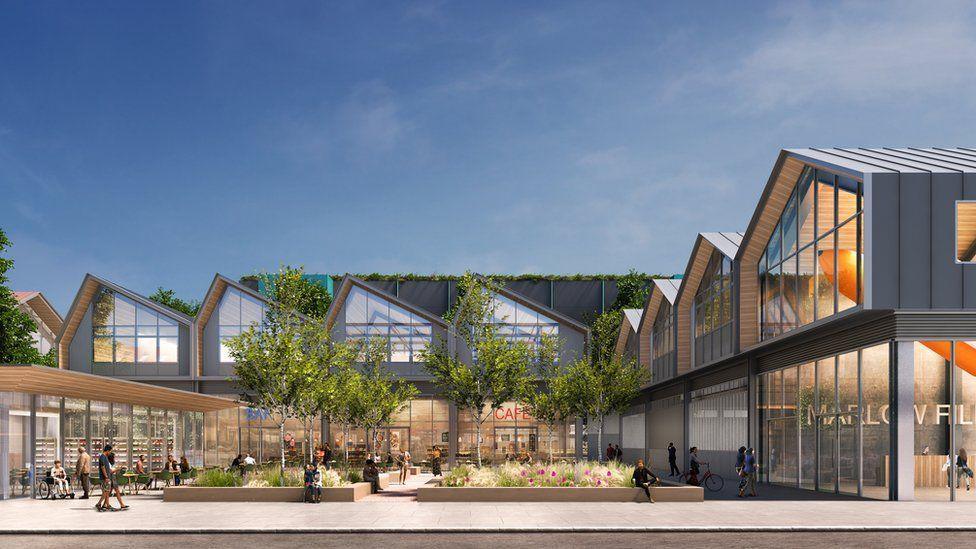
- Published23 October 2023
